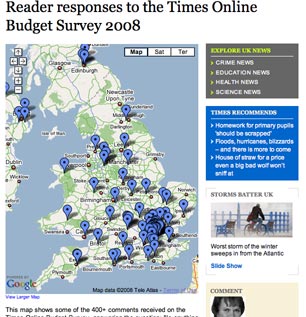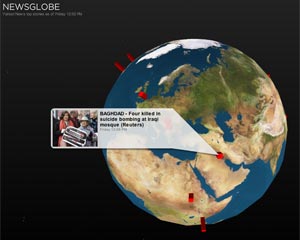Journalism.co.uk talks to journalists across the globe about social media and how they see it changing their industry. This week, Robin Hamman of the BBC.

1) Who are you and what do you do?
Robin Hamman, I’m a Senior Broadcast Journalist at the BBC where I spend much of my time showing people how to use social media and blogging as part of their ordinary programme and content making processes.
2) Which web or mobile-based social media tools do you use on a daily basis and why?
Most of them! My day starts with a visit to my web-based RSS reader that pulls in all the new content from around 90 blogs and other sources I subscribe to.
Some of those feeds are also things like Technorati, Icerocket and Google blog searches on various keywords. This means I very rarely have to proactively seek out content on the web anymore.
As I read through my RSS feeds I use Del.icio.us to bookmark and share the interesting content I find. This, in turn, publishes into my blog automatically at lunchtime – again, creating content out of something I’d do anyway.
If I’m out and about I’ll use Zonetag on my mobile to tag, location stamp and upload photos to Flickr. I also use Twitter to stay in touch with my friends and contacts, something via mobile, other times online.
If I’m planning to go out of town for work or a conference I put the details into Dopplr so I can see if any of my contacts are also going to be in town. I’m also a big user of Facebook – it, along with Twitter, has pretty much taken the place of email for me recently. I’m also experimenting with a few other social media tools such as qik, which broadcasts live video from my phone to the web, and some RSS aggregation tools like Yahoo Pipes.
3) Of the thousands of social media tools available could you single one out as having the most potential for news either as a publishing or news-gathering tool?
If the question had been simply about online tools, then RSS would be my choice, but as you’ve asked about social tools, Del.icio.us is the one I’d highlight as having a lot of potential.
Get over to the CommonCraft video about it and you’ll soon understand. BBC Journalists and production teams are increasingly discovering and using this great tool to collaborate more easily whilst researching and to turn their research process into content.
4) And the most overrated in your opinion?
Anything to do with video online – I just don’t get it. The only reason I shoot and post video online, aside from when I’m demonstrating how to do it, is to save my hands from having to transcribe a conference presentation that I’m live blogging.


